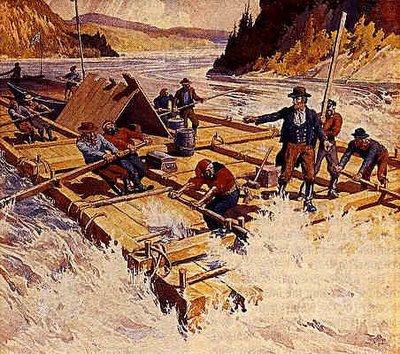Robert Mullen (1849-1936) : Born in Ottawa Valley

1871 Ontario Census partial Map
Robert Mullen, Herb's grandfather, was born in Horton Township in Renfrew County in 1849. He was the son of John and Eliza Mullen both from Ireland. Robert was our first Mullen descendant to be born in Canada. He married a gal named Mary Scobie who's father had immigrated from Scotland.
Horton Township resides along the Ottawa River in what's known as the Ottawa Valley. The Ottawa River area is the place where both Herb's and Alice's families settled. Alice's family, the Morrison's settling in Lower Canada (the Quebec side) in Bristol and the Mullen's in Upper Canada (Ontario) across the river on the west side in Horton. The Ottawa River was busy in those days with lumber rafts lumber being the primary trade.
Horton Township sits approximately in the middle between Pembroke and Bytown if you paddle up the river. Bytown? that was the name of Ottawa before it became Canada's capital city.











